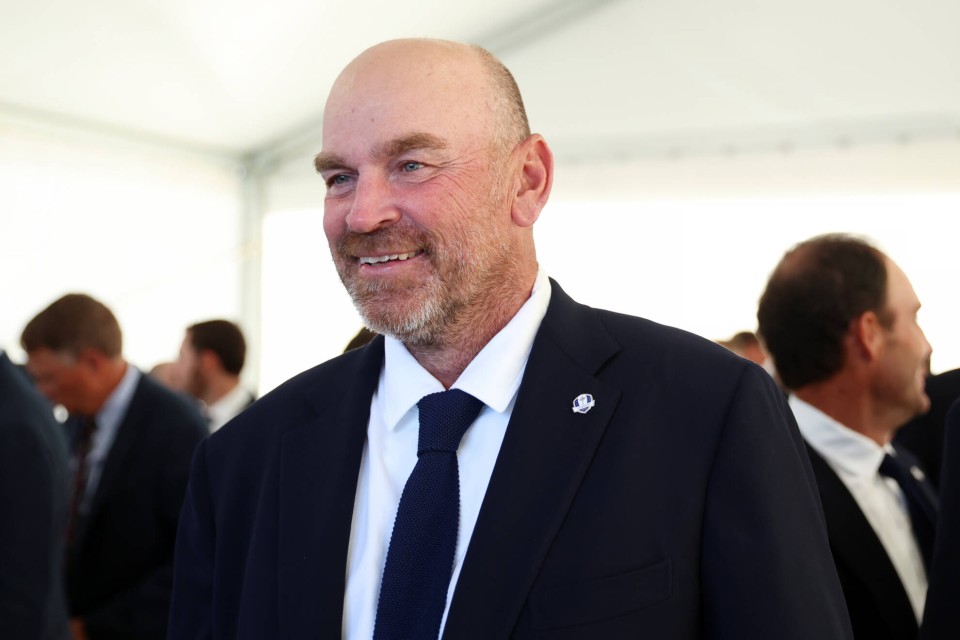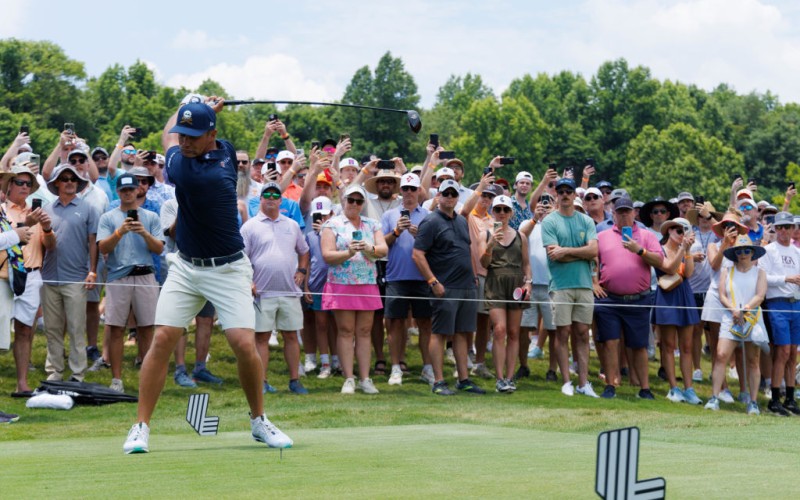Over the course of three remarkable decades, Thomas Bjørn has undeniably stood as a towering figure, exemplifying the very essence of a generation of European golfers.
From claiming victory 23 times as a professional and orchestrating a triumphant Ryder Cup campaign for Team Europe in 2018 to outshining the legendary Tiger Woods at the Dubai Desert Classic, Bjørn has etched his name into golf folklore plenty of times during that period.
Now, following the expiration of his exemption on the DP World Tour last season, Bjørn is set for the next chapter of his love affair with the game, as he targets more starts on the Legends Tour, Champions Tour and the odd DP World Tour event here and there, including next month’s Bahrain Championship.
Thomas Wragg caught up with the no-nonsense Dane at the MCB Tour Championship – Mauritius, to find out what lies ahead, why Scandinavian golf is in such a good place and how the golfing world can come together following years of division.
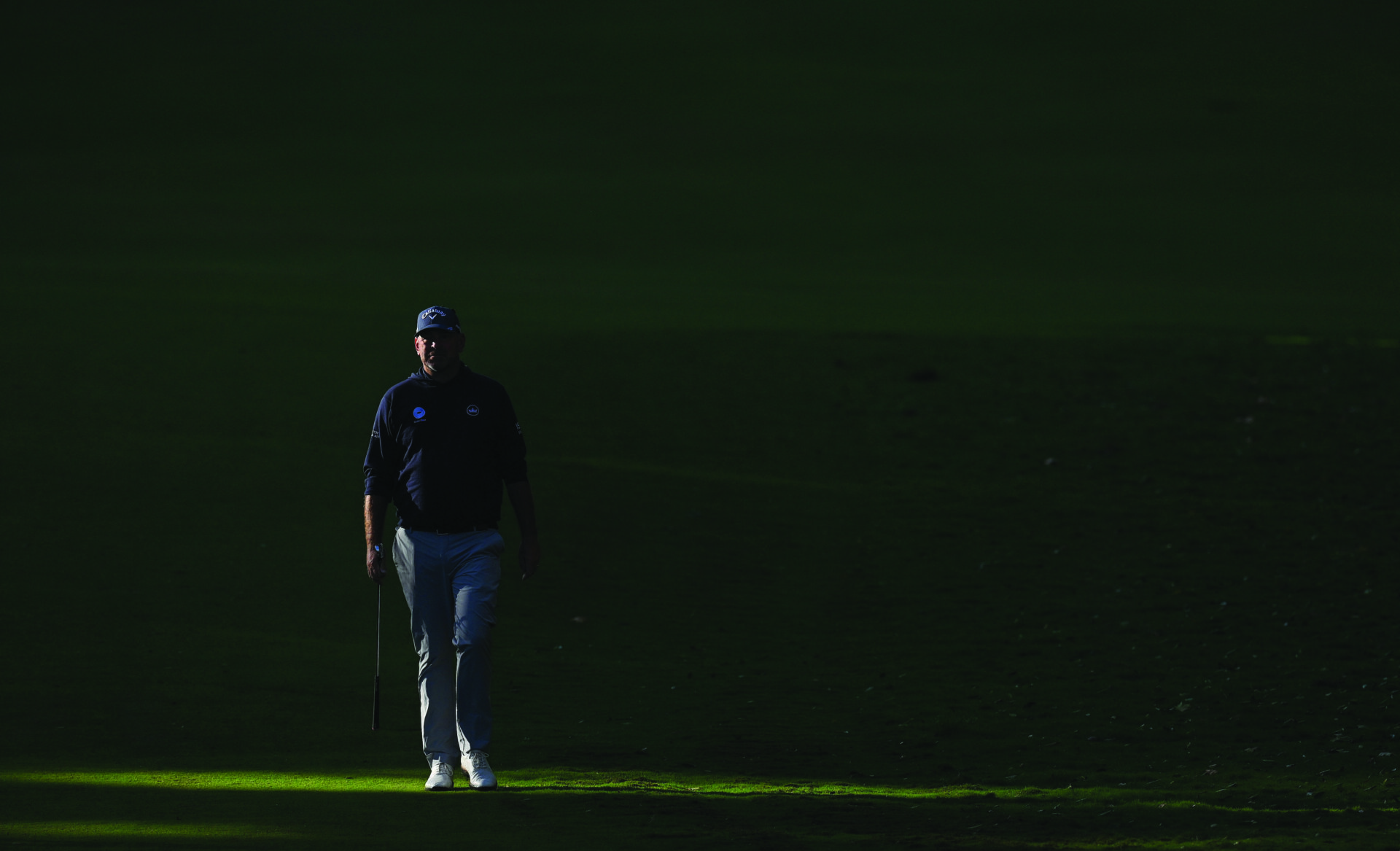
Worldwide Golf: You said you wouldn’t be playing a full schedule this year, so what does 2024 have in store for Thomas Bjørn?
Thomas Bjørn: What I said was, I don’t have a full exemption on Tour, so I’m going to still play golf events. I’ll still play a few on the main tour. I want to play a bit more seniors golf going forward, hopefully a little bit in America and a little bit in Europe.
But no, I still want to play, but I feel like golf is in a peculiar place at the moment, and the game has to go down a route where it comes together. I think there’s a lot of things that can be done in the game. I think this is a great game and it has so many great opportunities ahead of it. We just need to be in a world where the people that are in it drive it in the right direction for the sake of the game. And I’ll always go back to it, that’s the most important thing.
You know, it seems the game at the moment has gone to a place where it’s all about money and that’s the conversation that everything lands on. But there’s a future for this game and for the professional game. I’m very much a believer that you come into something and you should try and leave it in a better place for the generation that comes after you. I’m not sure that right at this moment in time, we are going entirely in that direction. That’s a conversation that definitely needs to be had amongst the players and amongst the administrators of the game that the professional game is not the game. The amateur game is the game. The game is what millions of people are playing and enjoying golf, but the professional game is a shining light at the top of the pyramid that needs to set the direction of where golf goes. That needs to be in a good place.
It’s not a criticism of where the game is. I can see why it’s gone there, because professional sports have gone there over the last 10 years. It was only a matter of time when golf was going to get dragged into that whole conversation, but it’s an important conversation to have. Where do we want this game to go, and how can the professional game be the thing at the top of the tree that drags the whole train in the right direction? There’s a lot of things going on at the moment with, you know, what tours and which tours are doing what and then you’ve got the rollback of the ball, and you’ve got all these things going on. It seems to cause nothing but negative conversation.
We have more participants in golf than we have ever had. The game at amateur level, at handicap golfers, club golfers is as good as it’s ever been. There’s not enough good conversation about the game of golf. It seems to be that the whole conversation is fairly negative at the moment and that needs to be sorted out. I’d like to be in that conversation because I think that the players need to be in that conversation. The players need to realise where they come from and where they want the game to go. And I think it’s important that somebody stands up eventually and goes, “hang on a second, the game is the most important thing here”.
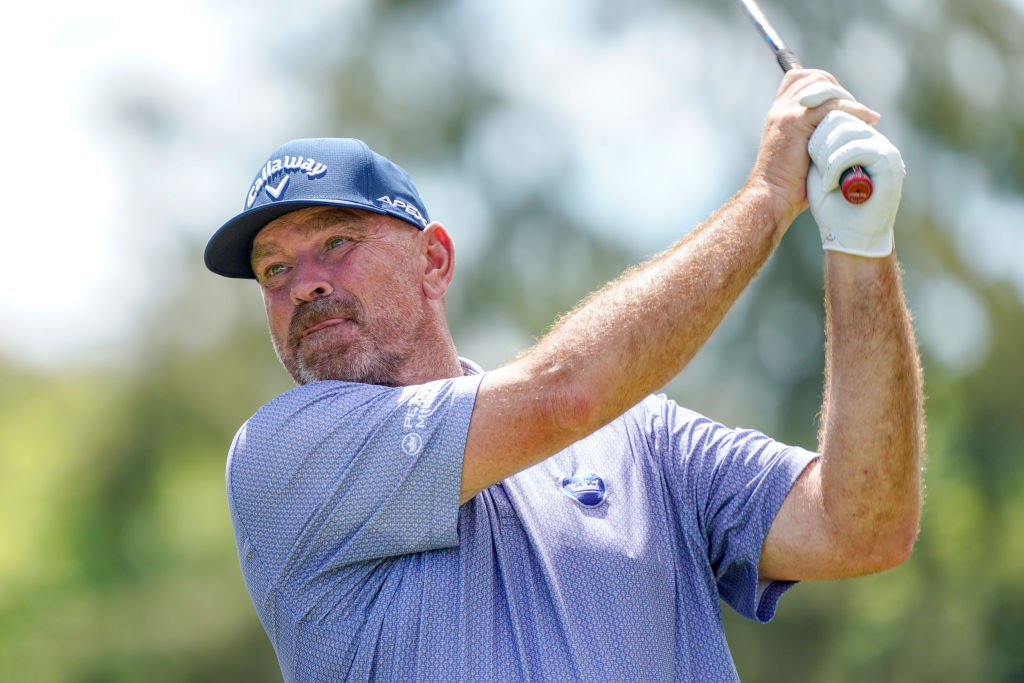
WWG: Do you think some players might have lost sight of that, though, with the crazy amount of money involved?
TB: Well, it is silly money, but you can never blame the players because it’s not the players that are offering the money. It’s not the players that are driving this. This has been driven from somewhere else. That’s where professional sports, not just golf, has gone over a long period of time. So, I don’t think the players have lost sight. The players are reacting to the environment that’s there, and then they try and make their way with that. And for me, that’s not really where the problem lies.
I just think that you’ve got to try and create something that’s sustainable. When you have a professional sport, your competitors are other professional sports, but golf seems to have competitors within the sport, which I don’t think is sustainable. I don’t think that that has a future in the game. I think we’ve got to find a way where we bring the professional game together and it becomes a worldwide sport, and it becomes a worldwide successful sport.
I think it’s one of the very few sports that really actually touches every corner of the world as well. I think we lost sight of that. I do think we lost sight of that. I do think it’s a bigger worldwide sport than it’s given credit for. The tours don’t create enough focus on it being a worldwide sport, but that’s always been like that in all the time I’ve played. I remember growing up always watching the South African Open, the Australian Open, the Japan Open, you know, they were great big events an, they’re still great events, but they don’t get the credit that they deserve in the world schedule.
Playing those events have been some of my most enjoyable memories. To go to these places and play golf on some great golf courses against great players with a great tradition and history and when those tournaments don’t get that credit and that recognition anymore, I find that a shame. We’ve created a world where it’s a little bit too simplified.
WWG: One of those corners of the world the game touches is obviously your homeland in Denmark. You were there to witness Nicolai Højgaard’s victory at the DP World Tour Championship in November – how special was that as you’ve always said that both him and Rasmus could go right to the top?
TB: They’re amazing, the two of them. Scandinavian golf is in a golden era of players all of a sudden. Viktor Hovland is the driving force, he’s obviously unbelievable. I mean, very few players come around where you’re kind of like, “wow, this is pretty special, you know?” And he is a very, very special, hugely talented young man. And I think Nicolai, Rasmus, Ludvig Aberg and your Vincent Normmans look at this guy and go, “hang on a second, here’s a guy from our neck of the woods, and if he can do it, we can do it.” And so there’s a group of guys in Scandinavian golf at the moment that are very talented, hugely successful, and can go a long way.
Obviously for me, being Danish, Rasmus and Nicolai are the ones that take a little bit more of my interest. I was just delighted for Nicolai in Dubai. I thought it was a fantastic performance. If you think about it, he’s 22 years old and he’s birdied five of the last six holes to win the tournament. That’s pretty special, to do that on a tricky golf course as well. So, you know, I look at these guys, I see them being very special; they’ve got great futures ahead of them and I’m glad I’m not having to play against them too often!
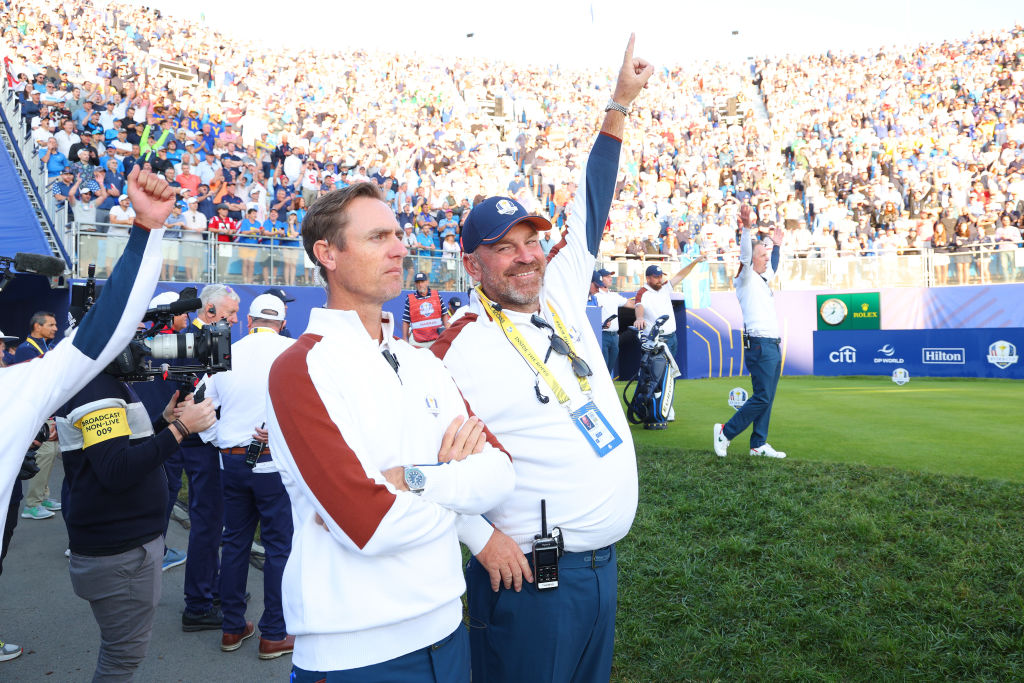
WWG: A few of those guys were part of the victorious European Ryder Cup team in Rome, while you were Vice Captain. How was your experience of that week and what did you make of Luke Donald’s captaincy?
TB: It was an amazing week, Ryder Cups are amazing. Obviously they are particularly amazing when the team win. I’ve been part of a lot; seen a lot of captaincies, played in a good few and I’ve captained myself, but you kind of look at them all and I think it’s unfair to try and compare them as it doesn’t really work because environments are created from different circumstances. I thought one of the big moments for Luke’s captaincy was the practice trip to Rome, which in all honesty, I wasn’t really sure if it was going to have an effect.
But the way the players took to that was amazing. It created an environment during the week at Wentworth where all of a sudden it had already started; they were already together as a team and it worked out very well. I worked very closely with Luke in his captaincy, and when I look back at it, it’s difficult to put your finger on anything that he did wrong. But the great thing about Luke was Luke never pretended to know everything.
He was very curious in his way of talking to people. I worked closely with him, but he was always talking to people, he was always trying to figure something out. His captaincy was 99.9 out of a hundred and I think that also leads into him doing it again is the right choice, because that’s what the players want. And why would you not have a captain that the players are so supportive and behind, why would you not choose that? Why would you go down a different route? So I’m delighted. For me, it was a great experience, I enjoyed every minute of it. I enjoyed working with Luke, being in that environment and watching this team come into their own.
I felt in Paris and from afar in 2021 that the European team might be heading in a strange direction, as you had this generation of players that were in and around the Ryder Cup for so many years that it didn’t really give an opportunity for these new superstars to form their own path. I felt in Rome that your McIlroys, Rahms and Hovlands could form the team the way that saw it, which created a great environment for the young guys. I think Luke identified that very quickly, that he could play into those three being leaders in the team room, on the golf course, in their own minds. And I think that that made them so comfortable with each other.
Our team rooms are amazing every time. I’ve been in winning team rooms a lot and I was in a losing team room with Daren Clarke in 2016, and that environment was still great. But there was something different about this team in Rome, it’s hard to actually pinpoint what it was. I think it had a lot to do with those top players being extremely comfortable in that environment, as they could then lead both on and off the course.
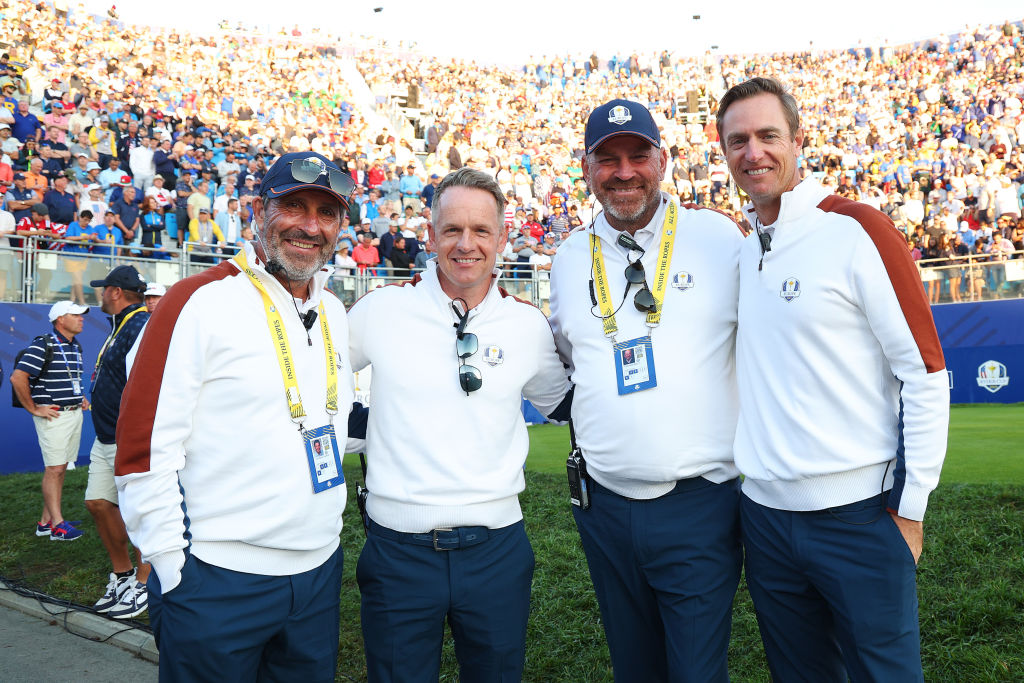
WWG: If you got the call from Luke to take up the Vice Captain role again in 2025 would you accept?
TB: I think Luke needs to sit down and obviously look at how he wants to do it. If he thinks that I can help him, then we’ll have to have that conversation. And that’s a big conversation to have. I felt after Paris my Ryder Cup story was done and then I got the call to play a part in Rome and was quite heavily involved. It takes a lot out of you to be a captain, but it also takes a lot for the guys around the captain; you put a lot of things, I wouldn’t say on hold, but that becomes your focus and that’s your path.
So we need to have that conversation if that’s the route Luke wants to go. I have a lot of time for him, I think the world of him as a person and I think he was an amazing captain. I would love to be part of a team that could go to New York. Ever since it was announced, we probably feared that one the most of what’s ahead. If you can create an environment where a team could go to New York and be competitive and maybe even win it. That would be some feat.
WWG: Finally, I know you’re going to be playing at the Bahrain Championship in February. What are your thoughts on Royal Golf Club and how excited are you to head back there for the first time in 13 years?
TB: I know they’ve made some changes since we visited in 2011, but I thought it was a good golf course. I’ve played in all the territories that we have played in as a tour in the Middle East. So, obviously Dubai has been the leader and then Abu Dhabi, Saudi, Oman, Ras Al Khaimah and now Bahrain again. Everything has to find a way and then grow from there, I’m just glad we’re back in the Kingdom. I have fond memories of what it was back then and I’m quite sure in the last 13 years, a lot of things have happened.
I’m looking forward to going back there and seeing the progression of the country, the progression of golf in Bahrain and trying to play my part in making the county the next chapter of our story. I’ll go back to it again, but it’s about making the game global. We have an opportunity in our game to touch every country, so we should be going everywhere to play the game. We have played a big role in growing golf in the Middle East, especially in the UAE, and now we have an opportunity to help grow it even further it in Bahrain. That’s the responsibility of the professional game as well, to be able to make sure we leave a footprint on the game and grow it in the places that we are lucky to be invited to play.




